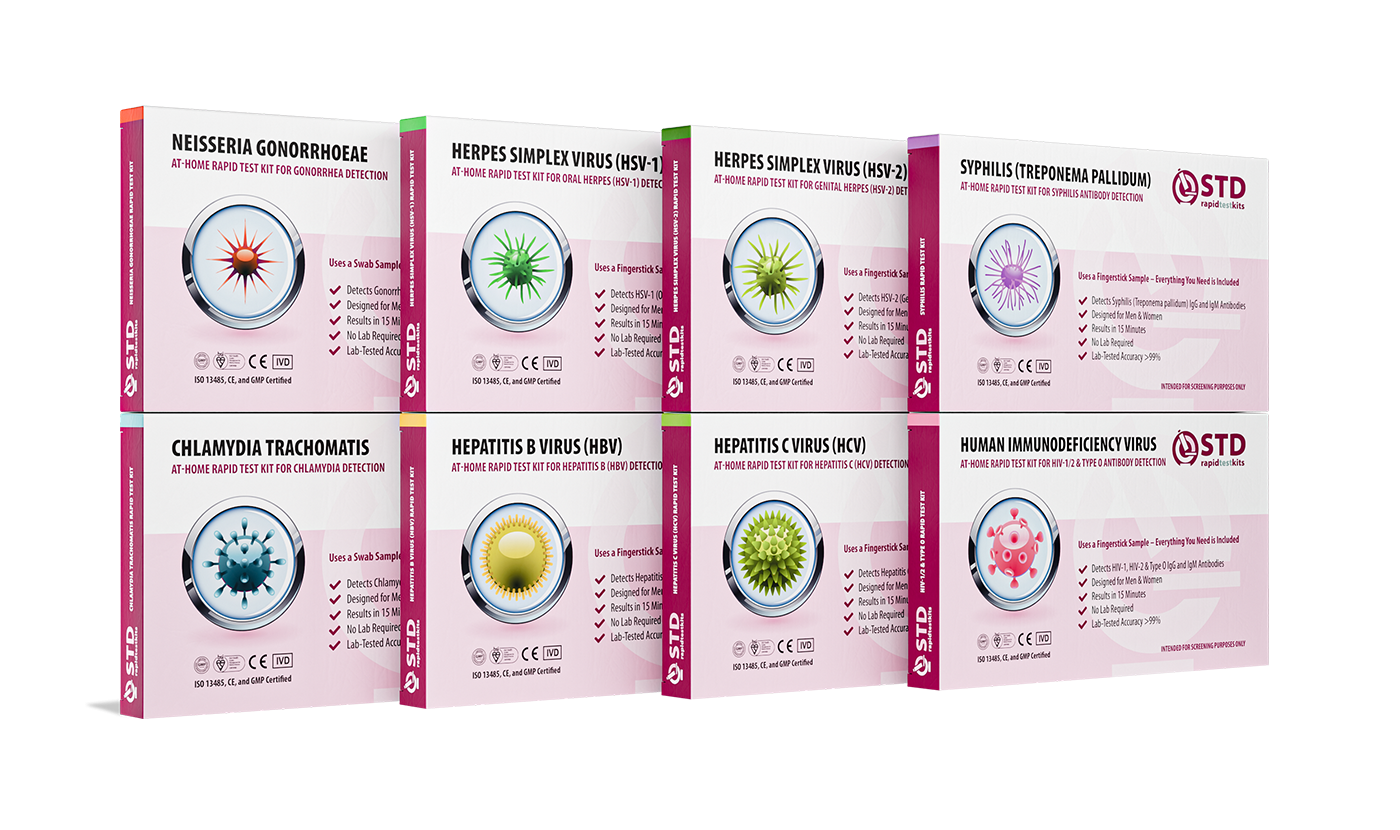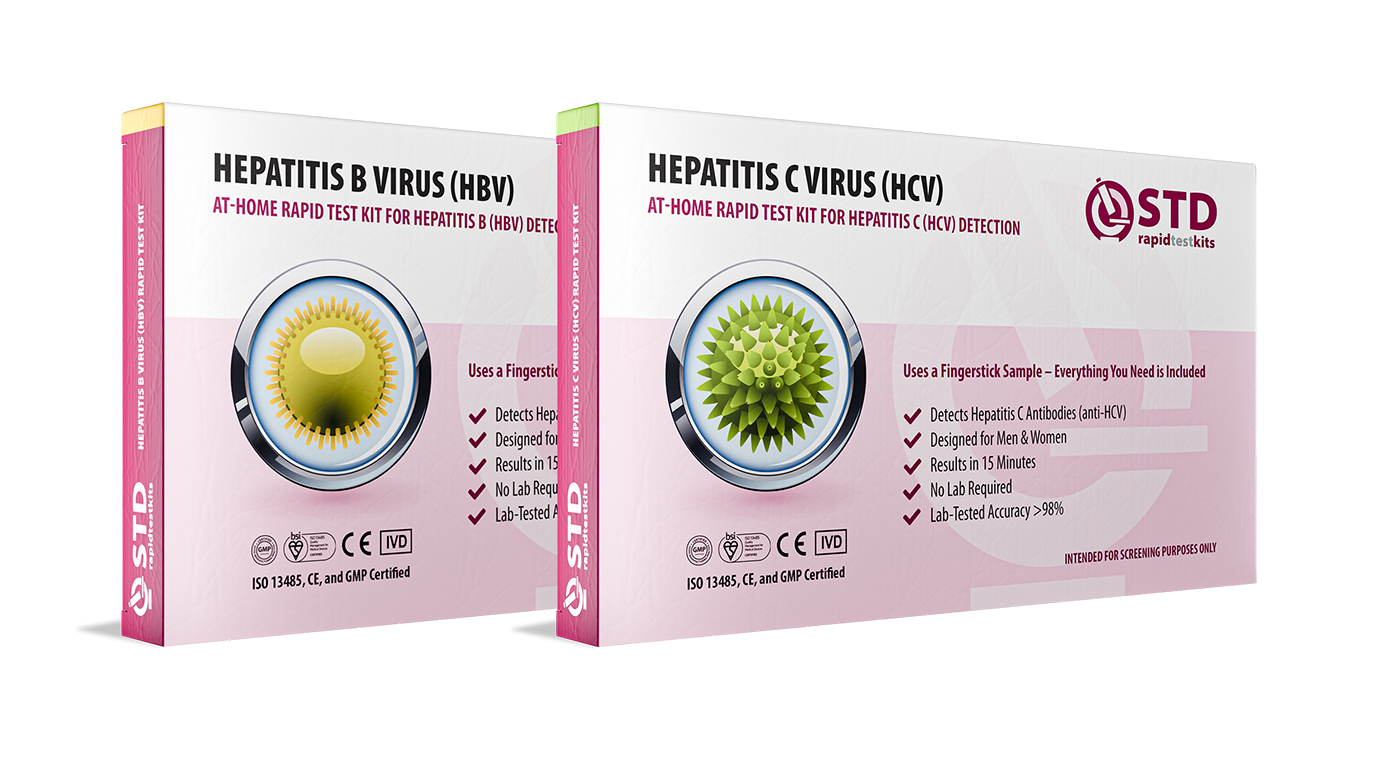What the Shame Spiral Actually Is
The “shame spiral” isn’t just an emotional reaction, it’s a psychological trap. It starts with a trigger (a diagnosis or even the idea of getting tested) and spirals into feelings of guilt, disgust, isolation, and fear of rejection. The result? You stay silent, don’t seek help, and internalize the idea that you are less worthy.
According to the CDC, stigma is one of the biggest barriers to STD prevention and treatment. People don’t want to be seen at clinics. They delay care. They ghost their partners. Why? Because of shame.
- Trigger: Positive result, exposure, or testing decision
- Thought: “I’m dirty” or “People will judge me”
- Emotion: Shame, fear, anxiety
- Behavior: Isolation, silence, avoidance of care

People are also asking: Are At‑Home STD Kits Reliable?
Why You Might Miss It
STD stigma is sneaky. You might think you’re just “being cautious” by not telling your partner. Or that your anxiety is about health risks, not self-image. But behind those thoughts is often a deep-rooted belief: “If I have an STD, something is wrong with me.”
This hidden shame often appears as:
- Social withdrawal: Avoiding intimacy or ghosting potential partners
- Perfectionism: Feeling like your diagnosis makes you “unlovable” or “damaged goods”
- Hyper-vigilance: Constant body checking or health anxiety after exposure
- Depression: Loss of self-worth, especially for those already managing mental health issues
Where the Stigma Comes From
The roots of STD shame run deep, into culture, religion, misogyny, racism, and even outdated public health campaigns. Historically, STDs were framed as consequences of immoral behavior. Even today, we still see media tropes that equate sexual health with virtue or dirtiness.
Let’s break it down:
- Language: Calling someone “clean” after a negative test implies others are “dirty”
- Media: TV shows and movies using STDs as punchlines or plot-shaming
- Health care: Judgmental or dismissive clinicians can reinforce shame during testing
- Sex ed: Abstinence-only programs emphasize fear and guilt rather than fact
These influences shape how we see ourselves and others after a diagnosis, even when we know better logically.
What Your Body’s Trying to Tell You
Your emotional reaction to an STD diagnosis isn’t irrational, it’s a survival response. Our brains are wired to fear social rejection. For many, a diagnosis feels like a red mark against our identity, especially if we’ve been taught that sex is shameful or dangerous.
You might notice:
- Somatic symptoms: Nausea, tension, panic, sleep disruption
- Emotional flashbacks: Feeling suddenly “bad” or “contaminated”
- Cognitive distortions: Thinking, “I’ll never be loved again” or “No one will want me”
This isn’t just emotional, it’s biological. The shame spiral taps into your nervous system and hijacks your ability to think clearly or make rational decisions about your health. That’s why compassion is essential, not just treatment.
Check Your STD Status in Minutes
Test at Home with Remedium8-in-1 STD Test Kit

 For Men & Women
For Men & Women Results in Minutes
Results in Minutes No Lab Needed
No Lab Needed Private & Discreet
Private & DiscreetOrder Now $149.00 $392.00
For all 8 tests
The Emotional Fallout No One Talks About
STD diagnosis often triggers a grieving process, a mix of shock, anger, sadness, and self-blame. But most people don’t even recognize it as grief. They just think they’re “overreacting.” You’re not.
This grief stems from:
- Loss of identity: “I thought I was the kind of person who doesn’t get STDs.”
- Fear of judgment: “My partner, friends, or family will look at me differently.”
- Fear of rejection: “No one will want to be with me now.”
According to a 2018 study, people with STDs often experience long-term impacts on self-esteem, especially when the diagnosis is tied to relationship betrayal, trauma, or identity-based stigma (e.g., in LGBTQ+ communities).
STD Diagnosis ≠ Moral Failure
Here’s what needs to be said, loudly and clearly: Getting an STD is not a moral failure. It doesn’t mean you’re reckless, dirty, or deserving of punishment. It means you’re human, you’ve had sex (like most adults), and now you have new health info to deal with.
Consider this: The WHO estimates over 1 million curable STIs are acquired every single day worldwide. That includes Chlamydia, Gonorrhea, Syphilis, and Trichomoniasis. These are incredibly common, often symptomless, and mostly treatable.
If you had a cold, you’d treat it. If you had strep, you’d tell your partner. STDs should be no different.
Take back control: Consider using the 6-in-1 STD At-Home Rapid Test Kit to get tested privately, at home, without the fear of judgment.
Dating With an STD: The Rejection Trap
One of the worst parts of the shame spiral is the fear that no one will want you once you disclose your diagnosis. But the reality? Most people respond better than you expect, especially when you lead with honesty and calm confidence.
Disclosure Tips:
- Pick the right time: Before sex, but not during. Choose a neutral, private setting.
- Use facts: “I have herpes, which is super common. It’s manageable and doesn’t define me.”
- Offer reassurance: Explain how you manage the condition and what precautions you take.
If someone reacts with cruelty, that says more about them than you. Rejection hurts, but silence and shame hurt more. You deserve connection, not fear-driven isolation.
Pro tip: More dating apps now allow you to list your STD status. There’s also a growing community of support groups and apps like PositiveSingles that normalize dating after diagnosis.

People are also reading: The Fastest STDs to Show Up (And What to Watch For)
How to Break the Shame Cycle
You can’t just “snap out of” shame, but you can work through it. Here’s how to stop the spiral and reclaim your sense of self:
- Educate yourself: Knowledge replaces fear. Learn about your diagnosis from trusted sources like the CDC or NHS.
- Tell someone: Shame thrives in secrecy. Confide in a trusted friend or therapist.
- Practice affirmations: “This diagnosis doesn’t define me.” “I deserve love.” “I’m taking care of my health.”
- Get tested regularly: Normalize sexual health care. Try the Women’s 10-in-1 STD At-Home Rapid Test Kit or the Complete 8-in-1 STD At-Home Rapid Test Kit.
Stigma loses power when you face it with facts, support, and self-compassion.
Common Misconceptions That Feed the Spiral
Stigma thrives on misinformation. Here are a few damaging myths that keep the shame cycle spinning, and the facts to counter them:
Myth: “Only promiscuous people get STDs.”
Fact: You can get an STD from a single partner. Risk is about behavior, not identity.
Myth: “If I test positive, I’ll be alone forever.”
Fact: Millions of people with STDs are in healthy, loving, sexually active relationships.
Myth: “Having an STD means I was irresponsible.”
Fact: Most STDs are spread unknowingly because they’re symptomless or undiagnosed.
Myth: “Testing is scary and invasive.”
Fact: Many tests are quick, painless, and now available discreetly with at-home STD kits.
Check Your STD Status in Minutes
Test at Home with RemediumHepatitis B & Hepatitis C Test Kit

 For Men & Women
For Men & Women Results in Minutes
Results in Minutes No Lab Needed
No Lab Needed Private & Discreet
Private & DiscreetOrder Now $49.00 $98.00
For all 2 tests
FAQ
1. Can an STD really affect my mental health?
Absolutely. Anxiety, depression, and shame are common responses, especially with stigmatized STDs like herpes or HIV.
2. Why do I feel so gross after getting tested?
That reaction often comes from internalized stigma, not the actual test. You’ve absorbed harmful beliefs about STDs, and now’s the time to challenge them.
3. Does getting an STD mean I cheated?
Not necessarily. Many STDs lie dormant or asymptomatic for months. Diagnosis doesn’t always mean recent exposure or infidelity.
4. Is it normal to cry after getting a positive result?
Yes. Emotional overwhelm is a completely valid response to a health scare and perceived social risk. You’re allowed to grieve.
5. Can you live a normal life with herpes?
Yes. Herpes is common and manageable. Suppressive therapy and open communication make dating and sex totally possible.
6. How do I tell a new partner I have an STD?
Pick a calm moment, share your facts, and reassure them about your treatment. If they walk away, they’re not your person.
7. Will my STD show up on every test?
No. Some STDs require specific tests (e.g., herpes isn’t in standard panels). Check which infections are covered before testing.
8. Is it safer to get tested at home?
For many, yes. At-home STD test kits like the 6-in-1 STD At-Home Rapid Test Kit offer privacy and convenience, especially for those dealing with stigma or anxiety.
9. What if I get ghosted after disclosure?
It hurts, but it’s not your fault. Their reaction is about them, not your worth. The right people stay.
10. Are all STDs permanent?
No. Many STDs like chlamydia and gonorrhea are curable. Others, like herpes or HIV, are treatable and manageable long-term.
Don't Let Shame Hurt You
The shame spiral is real, but it doesn’t have to be permanent. STDs are a medical condition, not a moral judgment. Diagnosis doesn’t define you. And you are not alone, not in your fear, your feelings, or your future.
If you’re struggling, know this: Healing is more than treatment, it’s reclaiming your story. Start by getting informed. Get tested on your own terms. Tell one safe person. And remember: You’re not dirty. You’re not broken. You’re human, and worthy of care, connection, and love.
Sources
1. CDC: STD Communication Resources










